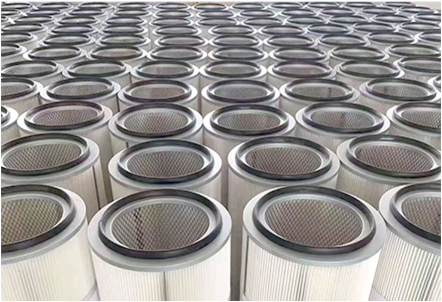 Tel:
+8618931101301
Tel:
+8618931101301
Αυγ . 18, 2024 07:47 Back to list
Choosing the Best Cartridge Oil Filter for Your Vehicle Maintenance Needs
Understanding Cartridge Oil Filters Essential Components for Engine Health
Cartridge oil filters are a crucial component in the internal combustion engines of most modern vehicles. They play an essential role in maintaining the engine's lubrication system, ensuring that the oil flowing through the engine is clean and free of contaminants. This article will explore the importance of cartridge oil filters, their design, how they work, and why regular maintenance is vital for vehicle longevity.
The Importance of Oil Filters
Cartridge oil filters serve a primary purpose to filter out impurities from the engine oil. Engine oil is responsible for lubricating moving parts, reducing friction, and dissipating heat. However, over time, the oil can accumulate dirt, metal shavings, and other contaminants that can significantly affect an engine's performance. Without a functioning oil filter, these contaminants can circulate through the engine, leading to increased wear and tear, reduced efficiency, and even catastrophic engine failure.
Design and Functionality
A cartridge oil filter typically consists of a cylindrical metal or plastic case filled with a filtering medium, usually made from paper, cotton, or synthetic materials. The design allows for a large surface area that maximizes the filter's ability to trap particulates while allowing the engine oil to flow freely. Unlike traditional spin-on filters, cartridge filters are usually housed inside a plastic or metal casing, which may require specific tools for removal and installation.
When the engine is running, oil is pumped through the filter, where it passes through the filtering medium. As the oil flows through the filter, contaminants are trapped, and clean oil is sent back into the engine. Most cartridge oil filters are designed to handle a significant amount of debris before they become clogged, but it’s essential to change them regularly as part of vehicle maintenance.
cartridge oil filter

Maintenance and Replacement
Regular maintenance of the cartridge oil filter is critical to ensure optimal engine performance. Most vehicle manufacturers recommend replacing the oil filter during every oil change, typically every 3,000 to 7,500 miles, depending on driving conditions and the type of oil used. Failing to replace a clogged oil filter can lead to a drop in oil pressure, which adversely affects lubrication and can result in engine damage.
Replacing the cartridge oil filter is a straightforward process but requires basic mechanical knowledge and tools. It generally involves draining the oil, removing the old filter, lubricating the rubber O-ring of the new filter, and then installing it securely. Following the replacement, it's essential to refill the engine with the appropriate type and amount of oil, ensuring that the engine runs smoothly and efficiently.
The Bottom Line
Cartridge oil filters are an indispensable part of maintaining a vehicle's engine health. They safeguard the engine by removing harmful contaminants from the oil, thus prolonging the engine's life and improving its performance. Regularly changing the cartridge oil filter, along with the engine oil, protects your investment and ensures that your vehicle runs efficiently.
In conclusion, neglecting the filter's maintenance can lead to costly repairs down the road. Vehicle owners should prioritize regular oil changes and filter replacements to maintain engine performance and reliability. By understanding the significance of cartridge oil filters, drivers can take proactive measures to safeguard their engines and enjoy trouble-free driving experiences for years to come.
-
Working principle of high-efficiency dust filter elementNewsJun.26,2025
-
The truth about washable filters: Does repeated use really not affect efficiency?NewsJun.25,2025
-
Effect of humidity on the performance of activated carbon filter elementsNewsJun.24,2025
-
Material selection considerations for dust removal filter elements under high temperature conditionsNewsJun.23,2025
-
Cold knowledge of air filters: Why are some designed to be pleated?NewsJun.16,2025
-
Factory direct supply! High-precision air filter element wholesale and customizationNewsJun.12,2025

 Email:
Email:





